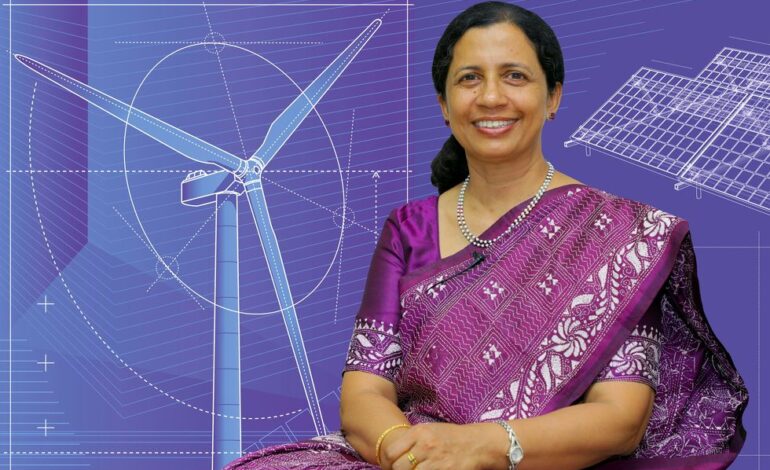Mini Thomas Champions Women’s Roles in Power Sector Leadership

Mini Thomas, a prominent figure in the power and energy sectors, has dedicated her career to empowering women within this traditionally male-dominated industry. Currently a professor at Jamia Millia Islamia University in New Delhi, she has held various leadership positions in India, including serving as the first female president of the National Institute of Technology, Tiruchirappalli. Her journey highlights the importance of family support and mentorship in advancing women’s careers in technical fields.
Thomas credits her family for her success, stating that without their encouragement, her career in academia would not have flourished. She emphasizes that many women face interruptions in their careers due to caretaking responsibilities. “For a woman to succeed, she needs a lot of family support,” Thomas explains. This understanding drives her commitment to help others navigate similar challenges.
From Student to Educator
Born and raised in Kerala, India, Thomas initially grappled with career choices. She excelled in mathematics and opted for engineering, given her aversion to medicine. Despite her parents being educators, it was not until her undergraduate years at the University of Kerala that she found her passion for teaching. Her knack for extensive note-taking made her a valuable resource for her peers, and she soon began tutoring them.
After earning her bachelor’s degree in electrical engineering in 1984, Thomas pursued a master’s degree at the Indian Institute of Technology, Madras, and began her teaching career at the National Institute of Technology, Calicut. Following her marriage, she relocated to New Delhi, where she undertook a Ph.D. in electrical engineering, completing it in 1990. She then joined Delhi Technological University, marking the start of a remarkable academic career.
In 2003, Thomas established a master’s program in electrical power system management at Jamia Millia Islamia, where she later became the dean of the engineering department. Her achievements include the creation of research labs and the establishment of a curriculum that integrates practical skills with academic knowledge. In recognition of her contributions, she received the IEEE Educational Activities Board Meritorious Achievement Award in 2015.
Mentorship and Advocacy for Women
As a mentor, Thomas focuses on cultivating future leaders in the power industry. She trains mid-career women through the South Asia WePOWER network, which aims to increase female participation in technical roles. A 2020 World Bank study revealed that the percentage of women in technical positions in South Asia ranges from 0.1% to 21%. The six-month program provides technical training and mentorship to women across several countries, including Bangladesh, India, and Sri Lanka.
Thomas is one of 40 experts involved in teaching critical aspects of the power industry, including renewable energy and the importance of female leadership. “Mentorship is what changed my career trajectory,” she states, expressing her desire to empower others with the confidence and skills needed to ascend to leadership roles.
Reflecting on her own journey, Thomas acknowledges the struggles many women face in balancing career and family. Her experience with leadership training at Jawaharlal Nehru University instilled confidence that propelled her into higher positions, and she aims to share those lessons with others.
Throughout her 35-year affiliation with IEEE, Thomas has been an active volunteer, contributing to student branches and educational initiatives. Her involvement has enhanced her professional growth and fostered lasting friendships, including a strong bond with Saifur Rahman, the 2023 IEEE President. Together, they have worked on initiatives aimed at addressing climate change and advancing women in technology.
As she transitions back to focusing on teaching, Thomas remains committed to advocating for women in the power sector. “You should always do what you enjoy,” she says, emphasizing that her passion lies in teaching and volunteering. Her efforts not only inspire the next generation of engineers but also aim to create a more inclusive environment within the power industry.






